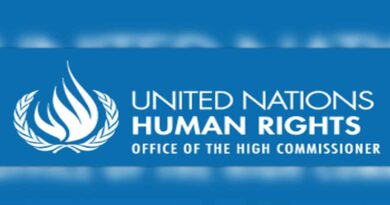Spain Violated Former Catalan Parliament Leaders’ Political Rights, UN Human Rights Committee Finds
(Special Correspondent)
GENEVA (31 August 2022) – The UN Human Rights Committee has found that Spain violated the political rights of former Catalan Government and Parliament members by suspending them from public duties prior to a conviction following the independence referendum in 2017.
The Committee published its views today after reviewing a complaint filed by Oriol Junqueras i Vies, former Vice-President of Catalonia, and three former ministers, Raül Romeva i Rueda, Josep Rull i Andreu and Jordi Turull i Negre. They were prosecuted and sentenced for their participation in the independence referendum and later events that led to the Parliament of Catalonia declaring independence in October 2017.
In September 2017, the Parliament of Catalonia passed a law authorising a referendum on Catalonia’s independence. Despite the Constitutional Court’s suspension order and police intervention, the referendum was held on 1 October.In mid-October, the Constitutional Court ruled that both the law and the referendum were unconstitutional, null and void. Nevertheless, the Catalonian Parliament declared independence and was thus immediately dissolved by the Government of Spain.
Junqueras and the three ministers were prosecuted, together with other officials, for the crime of rebellion, which entails a call for a violent uprising against the constitutional order. In July 2018, they were suspended from their functions as Members of Parliament in accordance with the Criminal Procedure Act, which only allows the suspension of officials when they are charged with rebellion.
During their pretrial detention, the four former Parliament members brought their case to the Committee, alleging that their suspension from public duties, prior to any conviction violated their political rights under Article 25 of the International Covenant on Civil and Political Rights.
In October 2019, the four of them were convicted of sedition, a crime that does not include the element of violence, as opposed to rebellion, and their suspensions were lifted.
“The Committee took an important step in affirming that the safeguards against the restrictions of political rights must be applied more rigorously if these restrictions occur prior to, rather than after, a conviction for an offence,” said Committee member Hélène Tigroudja.
Taking note that the four complainants had urged the public to remain strictly peaceful, the Committee considered that the decision to charge them with the crime of rebellion, which led to their automatic suspension prior to a conviction, was not foreseeable and therefore not based on reasonable and objective grounds provided for by law.
“The decision to suspend elected officials should rely on clear and foreseeable laws which establish reasonable and objective grounds for the restriction of the political rights, and must be applied based on an individualized assessment. Such an approach and safeguards are the best way to ensure respect for institutions and to promote the rule of law in a democratic society,” Tigroudja added.



